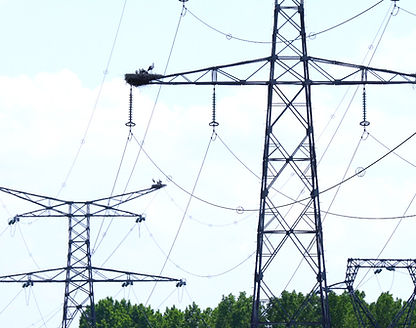
Improving & Sharing Knowledge
What is the context?
Given the limitations of carcass research and mortality data in these large areas, the impact of the lines is largely underestimated and therefore, in addition to the difficulty to identify responsible lines, insufficiently resolved.
The lack of data and knowledge due to difficulties in monitoring bird electrocutions and collisions (e.g. non-standardisation in data collection, difficulties on carcass recovering or determining the exact cause of death) is a major obstacle to accurately estimate the effect of power lines on birds and the effectiveness of mitigation measures.

© James Dwyer

© RGI
Secondly, engagement with all relevant actors is crucial for improving bird protection along the grid. Collaboration facilitates the exchange of valuable insights, experiences, and best practices, leading to the development and implementation of effective protective measures.
This collaborative effort not only enriches the pool of knowledge but also strengthens the commitment of all involved parties, promoting sustainable practices and driving the successful implementation of bird protection measures along the electricity grid.
What are the project actions?
The project aims to offer comprehensive insights into the interactions between birds and electricity grid infrastructure, aiming to gather a wealth of data and knowledge. To achieve this, we will compile information and experiences from European grid operators and environmental NGOs on a unified European platform. All collected data will be managed transparently and openly, accessible through the SafeLines4Birds digital platform. This approach streamlines the dissemination of knowledge concerning technical innovations and equipment throughout Europe, fostering the potential replication of successful initiatives in other countries.
_edited.jpg)
© RTE
Furthermore, diverse communication channels will be utilised to share results and knowledge, targeting not only the general public but also engaging various stakeholders, including civil society, grid operators, and regulatory bodies. Various of events will be organised to gather insights from diverse stakeholders, facilitating the replication of successful actions and promoting enhanced collaboration between environmental NGOs and grid operators across Europe and beyond.


.jpg)
